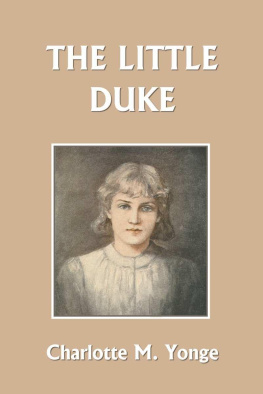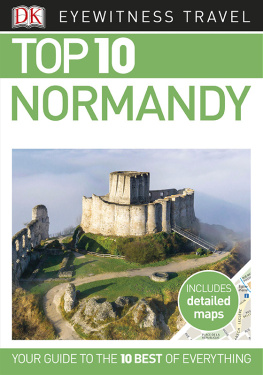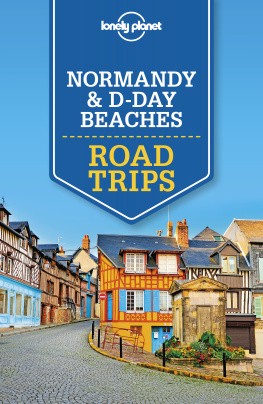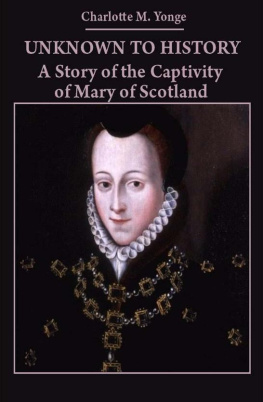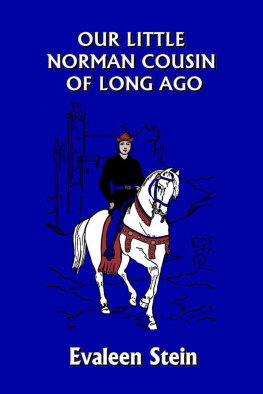Charlotte M. Yonge - The Little Duke
Here you can read online Charlotte M. Yonge - The Little Duke full text of the book (entire story) in english for free. Download pdf and epub, get meaning, cover and reviews about this ebook. year: 2007, publisher: Yesterdays Classics, genre: Home and family. Description of the work, (preface) as well as reviews are available. Best literature library LitArk.com created for fans of good reading and offers a wide selection of genres:
Romance novel
Science fiction
Adventure
Detective
Science
History
Home and family
Prose
Art
Politics
Computer
Non-fiction
Religion
Business
Children
Humor
Choose a favorite category and find really read worthwhile books. Enjoy immersion in the world of imagination, feel the emotions of the characters or learn something new for yourself, make an fascinating discovery.
- Book:The Little Duke
- Author:
- Publisher:Yesterdays Classics
- Genre:
- Year:2007
- Rating:3 / 5
- Favourites:Add to favourites
- Your mark:
- 60
- 1
- 2
- 3
- 4
- 5
The Little Duke: summary, description and annotation
We offer to read an annotation, description, summary or preface (depends on what the author of the book "The Little Duke" wrote himself). If you haven't found the necessary information about the book — write in the comments, we will try to find it.
The Little Duke — read online for free the complete book (whole text) full work
Below is the text of the book, divided by pages. System saving the place of the last page read, allows you to conveniently read the book "The Little Duke" online for free, without having to search again every time where you left off. Put a bookmark, and you can go to the page where you finished reading at any time.
Font size:
Interval:
Bookmark:
All rights reserved. No part of this book may be reproduced or retransmitted in any form or by any means without the written permission of the publisher.
This edition, first published in 2010 by Yesterday's Classics, an imprint of Yesterday's Classics, LLC, is an unabridged republication of the work originally published by Macmillan & Company in 1911. This title is available in a print edition (ISBN 978-1-59915-206-6).
Yesterday's Classics republishes classic books for children from the golden age of children's literature, the era from 1880 to 1920. Many of our titles are offered in high-quality paperback editions, with text cast in modern easy-to-read type for today's readers. The illustrations from the original volumes are included except in those few cases where the quality of the original images is too low to make their reproduction feasible. Unless specified otherwise, color illustrations in the original volumes are rendered in black and white in our print editions.
O N a bright autumn day, as long ago as the year 943, there was a great bustle in the Castle of Bayeux in Normandy.
The hall was large and low, the roof arched, and supported on thick short columns, almost like the crypt of a Cathedral; the walls were thick, and the windows, which had no glass, were very small, set in such a depth of wall that there was a wide deep window seat, upon which the rain might beat, without reaching the interior of the room. And even if it had come in, there was nothing for it to hurt, for the walls were of rough stone, and the floor of tiles. There was a fire at each end of this great dark apartment, but there were no chimneys over the ample hearths, and the smoke curled about in thick white folds in the vaulted roof, adding to the wreaths of soot, which made the hall look still darker.
The fire at the lower end was by far the largest and hottest. Great black cauldrons hung over it, and servants, both men and women, with red faces, bare and grimed arms, and long iron hooks, or pots and pans, were busied around it. At the other end, which was raised about three steps above the floor of the hall, other servants were engaged. Two young maidens were strewing fresh rushes on the floor; some men were setting up a long table of rough boards, supported on trestles, and then ranging upon it silver cups, drinking horns, and wooden trenchers.
Benches were placed to receive most of the guests, but in the middle, at the place of honour, was a high chair with very thick crossing legs, and the arms curiously carved with lions' faces and claws; a clumsy wooden footstool was set in front, and the silver drinking-cup on the table was of far more beautiful workmanship than the others, richly chased with vine leaves and grapes, and figures of little boys with goats' legs. If that cup could have told its story, it would have been a strange one, for it had been made long since, in the old Roman times, and been carried off from Italy by some Northman pirate.
From one of these scenes of activity to the other, there moved a stately old lady: her long thick light hair, hardly touched with grey, was bound round her head, under a tall white cap, with a band passing under her chin: she wore a long sweeping dark robe, with wide hanging sleeves, and thick gold ear-rings and necklace, which had possibly come from the same quarter as the cup. She directed the servants, inspected both the cookery and arrangements of the table, held council with an old steward, now and then looked rather anxiously from the window, as if expecting some one, and began to say something about fears that these loitering youths would not bring home the venison in time for Duke William's supper.
Presently, she looked up rejoiced, for a few notes of a bugle-horn were sounded; there was a clattering of feet, and in a few moments there bounded into the hall, a boy of about eight years old, his cheeks and large blue eyes bright with air and exercise, and his long light-brown hair streaming behind him, as he ran forward flourishing a bow in his hand, and crying out, "I hit him, I hit him! Dame Astrida, do you hear? 'Tis a stag of ten branches, and I hit him in the neck."

RICHARD WITH DAME ASTRIDA.
"You! my Lord Richard! you killed him?"
"Oh, no, I only struck him. It was Osmond's shaft that took him in the eye, andLook you, Fru Astrida, he came thus through the wood, and I stood here, it might be, under the great elm with my bow thus" And Richard was beginning to act over again the whole scene of the deer-hunt, but Fru, that is to say, Lady Astrida, was too busy to listen, and broke in with, "Have they brought home the haunch?"
"Yes, Walter is bringing it. I had a long arrow"
A stout forester was at this instant seen bringing in the venison, and Dame Astrida hastened to meet it, and gave directions, little Richard following her all the way, and talking as eagerly as if she was attending to him, showing how he shot, how Osmond shot, how the deer bounded, and how it fell, and then counting the branches of its antlers, always ending with, "This is something to tell my father. Do you think he will come soon?"
In the meantime two men entered the hall, one about fifty, the other, one or two-and-twenty, both in hunting dresses of plain leather, crossed by broad embroidered belts, supporting a knife, and a bugle- horn. The elder was broad-shouldered, sun-burnt, ruddy, and rather stern-looking; the younger, who was also the taller, was slightly made, and very active, with a bright keen grey eye, and merry smile. These were Dame Astrida's son, Sir Eric de Centeville, and her grandson, Osmond; and to their care Duke William of Normandy had committed his only child, Richard, to be fostered, or brought up.
It was always the custom among the Northmen, that young princes should thus be put under the care of some trusty vassal, instead of being brought up at home, and one reason why the Centevilles had been chosen by Duke William was, that both Sir Eric and his mother spoke only the old Norwegian tongue, which he wished young Richard to understand well, whereas, in other parts of the Duchy, the Normans had forgotten their own tongue, and had taken up what was then called the Langued'oui, a language between German and Latin, which was the beginning of French.
On this day, Duke William himself was expected at Bayeux, to pay a visit to his son before setting out on a journey to settle the disputes between the Counts of Flanders and Montreuil, and this was the reason of Fru Astrida's great preparations. No sooner had she seen the haunch placed upon a spit, which a little boy was to turn before the fire, than she turned to dress something else, namely, the young Prince Richard himself, whom she led off to one of the upper rooms, and there he had full time to talk, while she, great lady though she was, herself combed smooth his long flowing curls, and fastened his short scarlet cloth tunic, which just reached to his knee, leaving his neck, arms, and legs bare. He begged hard to be allowed to wear a short, beautifully ornamented dagger at his belt, but this Fru Astrida would not allow.
"You will have enough to do with steel and dagger before your life is at an end," said she, "without seeking to begin over soon."
Font size:
Interval:
Bookmark:
Similar books «The Little Duke»
Look at similar books to The Little Duke. We have selected literature similar in name and meaning in the hope of providing readers with more options to find new, interesting, not yet read works.
Discussion, reviews of the book The Little Duke and just readers' own opinions. Leave your comments, write what you think about the work, its meaning or the main characters. Specify what exactly you liked and what you didn't like, and why you think so.

